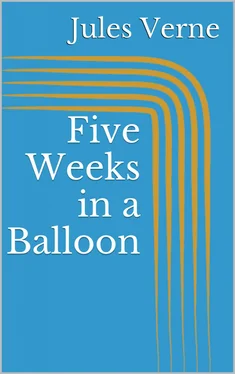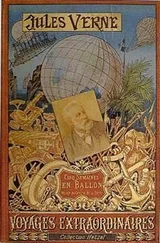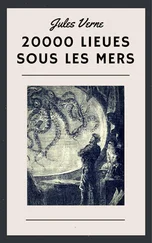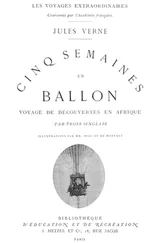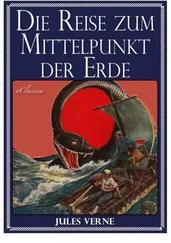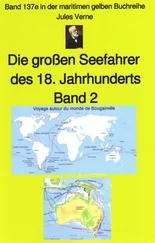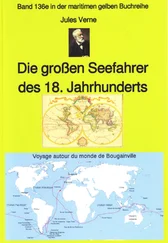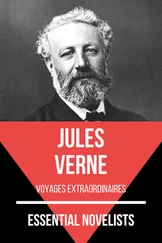From Surat we see him going over to Australia, and in 1845 participating in Captain Sturt's expedition, which had been sent out to explore the new Caspian Sea, supposed to exist in the centre of New Holland.
Samuel Ferguson returned to England about 1850, and, more than ever possessed by the demon of discovery, he spent the intervening time, until 1853, in accompanying Captain McClure on the expedition that went around the American Continent from Behring's Straits to Cape Farewell.
Notwithstanding fatigues of every description, and in all climates, Ferguson's constitution continued marvellously sound. He felt at ease in the midst of the most complete privations; in fine, he was the very type of the thoroughly accomplished explorer whose stomach expands or contracts at will; whose limbs grow longer or shorter according to the resting-place that each stage of a journey may bring; who can fall asleep at any hour of the day or awake at any hour of the night.
Nothing, then, was less surprising, after that, than to find our traveller, in the period from 1855 to 1857, visiting the whole region west of the Thibet, in company with the brothers Schlagintweit, and bringing back some curious ethnographic observations from that expedition.
During these different journeys, Ferguson had been the most active and interesting correspondent of the Daily Telegraph, the penny newspaper whose circulation amounts to 140,000 copies, and yet scarcely suffices for its many legions of readers. Thus, the doctor had become well known to the public, although he could not claim membership in either of the Royal Geographical Societies of London, Paris, Berlin, Vienna, or St. Petersburg, or yet with the Travellers' Club, or even the Royal Polytechnic Institute, where his friend the statistician Cockburn ruled in state.
The latter savant had, one day, gone so far as to propose to him the following problem: Given the number of miles travelled by the doctor in making the circuit of the Globe, how many more had his head described than his feet, by reason of the different lengths of the radii?—or, the number of miles traversed by the doctor's head and feet respectively being given, required the exact height of that gentleman?
This was done with the idea of complimenting him, but the doctor had held himself aloof from all the learned bodies—belonging, as he did, to the church militant and not to the church polemical. He found his time better employed in seeking than in discussing, in discovering rather than discoursing.
There is a story told of an Englishman who came one day to Geneva, intending to visit the lake. He was placed in one of those odd vehicles in which the passengers sit side by side, as they do in an omnibus. Well, it so happened that the Englishman got a seat that left him with his back turned toward the lake. The vehicle completed its circular trip without his thinking to turn around once, and he went back to London delighted with the Lake of Geneva.
Doctor Ferguson, however, had turned around to look about him on his journeyings, and turned to such good purpose that he had seen a great deal. In doing so, he had simply obeyed the laws of his nature, and we have good reason to believe that he was, to some extent, a fatalist, but of an orthodox school of fatalism withal, that led him to rely upon himself and even upon Providence. He claimed that he was impelled, rather than drawn by his own volition, to journey as he did, and that he traversed the world like the locomotive, which does not direct itself, but is guided and directed by the track it runs on.
"I do not follow my route;" he often said, "it is my route that follows me."
The reader will not be surprised, then, at the calmness with which the doctor received the applause that welcomed him in the Royal Society. He was above all such trifles, having no pride, and less vanity. He looked upon the proposition addressed to him by Sir Francis M——as the simplest thing in the world, and scarcely noticed the immense effect that it produced.
When the session closed, the doctor was escorted to the rooms of the Travellers' Club, in Pall Mall. A superb entertainment had been prepared there in his honor. The dimensions of the dishes served were made to correspond with the importance of the personage entertained, and the boiled sturgeon that figured at this magnificent repast was not an inch shorter than Dr. Ferguson himself.
Numerous toasts were offered and quaffed, in the wines of France, to the celebrated travellers who had made their names illustrious by their explorations of African territory. The guests drank to their health or to their memory, in alphabetical order, a good old English way of doing the thing. Among those remembered thus, were: Abbadie, Adams, Adamson, Anderson, Arnaud, Baikie, Baldwin, Barth, Batouda, Beke, Beltram, Du Berba, Bimbachi, Bolognesi, Bolwik, Belzoni, Bonnemain, Brisson, Browne, Bruce, Brun-Rollet, Burchell, Burckhardt, Burton, Cailland, Caillie, Campbell, Chapman, Clapperton, Clot-Bey, Colomieu, Courval, Cumming, Cuny, Debono, Decken, Denham, Desavanchers, Dicksen, Dickson, Dochard, Du Chaillu, Duncan, Durand, Duroule, Duveyrier, D'Escayrac, De Lauture, Erhardt, Ferret, Fresnel, Galinier, Galton, Geoffroy, Golberry, Hahn, Halm, Harnier, Hecquart, Heuglin, Hornemann, Houghton, Imbert, Kauffmann, Knoblecher, Krapf, Kummer, Lafargue, Laing, Lafaille, Lambert, Lamiral, Lampriere, John Lander, Richard Lander, Lefebvre, Lejean, Levaillant, Livingstone, MacCarthy, Maggiar, Maizan, Malzac, Moffat, Mollien, Monteiro, Morrison, Mungo Park, Neimans, Overweg, Panet, Partarrieau, Pascal, Pearse, Peddie, Penney, Petherick, Poncet, Prax, Raffenel, Rabh, Rebmann, Richardson, Riley, Ritchey, Rochet d'Hericourt, Rongawi, Roscher, Ruppel, Saugnier, Speke, Steidner, Thibaud, Thompson, Thornton, Toole, Tousny, Trotter, Tuckey, Tyrwhitt, Vaudey, Veyssiere, Vincent, Vinco, Vogel, Wahlberg, Warrington, Washington, Werne, Wild, and last, but not least, Dr. Ferguson, who, by his incredible attempt, was to link together the achievements of all these explorers, and complete the series of African discovery.
Chapter Second.
The Article in the Daily Telegraph.—War between the Scientific Journals.—Mr. Petermann backs his Friend Dr. Ferguson.—Reply of the Savant Koner.—Bets made.—Sundry Propositions offered to the Doctor.
On the next day, in its number of January 15th, the Daily Telegraph published an article couched in the following terms:
"Africa is, at length, about to surrender the secret of her vast solitudes; a modern OEdipus is to give us the key to that enigma which the learned men of sixty centuries have not been able to decipher. In other days, to seek the sources of the Nile—fontes Nili quoerere—was regarded as a mad endeavor, a chimera that could not be realized.
"Dr. Barth, in following out to Soudan the track traced by Denham and Clapperton; Dr. Livingstone, in multiplying his fearless explorations from the Cape of Good Hope to the basin of the Zambesi; Captains Burton and Speke, in the discovery of the great interior lakes, have opened three highways to modern civilization. THEIR POINT OF INTERSECTION, which no traveller has yet been able to reach, is the very heart of Africa, and it is thither that all efforts should now be directed.
"The labors of these hardy pioneers of science are now about to be knit together by the daring project of Dr. Samuel Ferguson, whose fine explorations our readers have frequently had the opportunity of appreciating.
"This intrepid discoverer proposes to traverse all Africa from east to west IN A BALLOON. If we are well informed, the point of departure for this surprising journey is to be the island of Zanzibar, upon the eastern coast. As for the point of arrival, it is reserved for Providence alone to designate.
"The proposal for this scientific undertaking was officially made, yesterday, at the rooms of the Royal Geographical Society, and the sum of twenty-five hundred pounds was voted to defray the expenses of the enterprise.
Читать дальше
